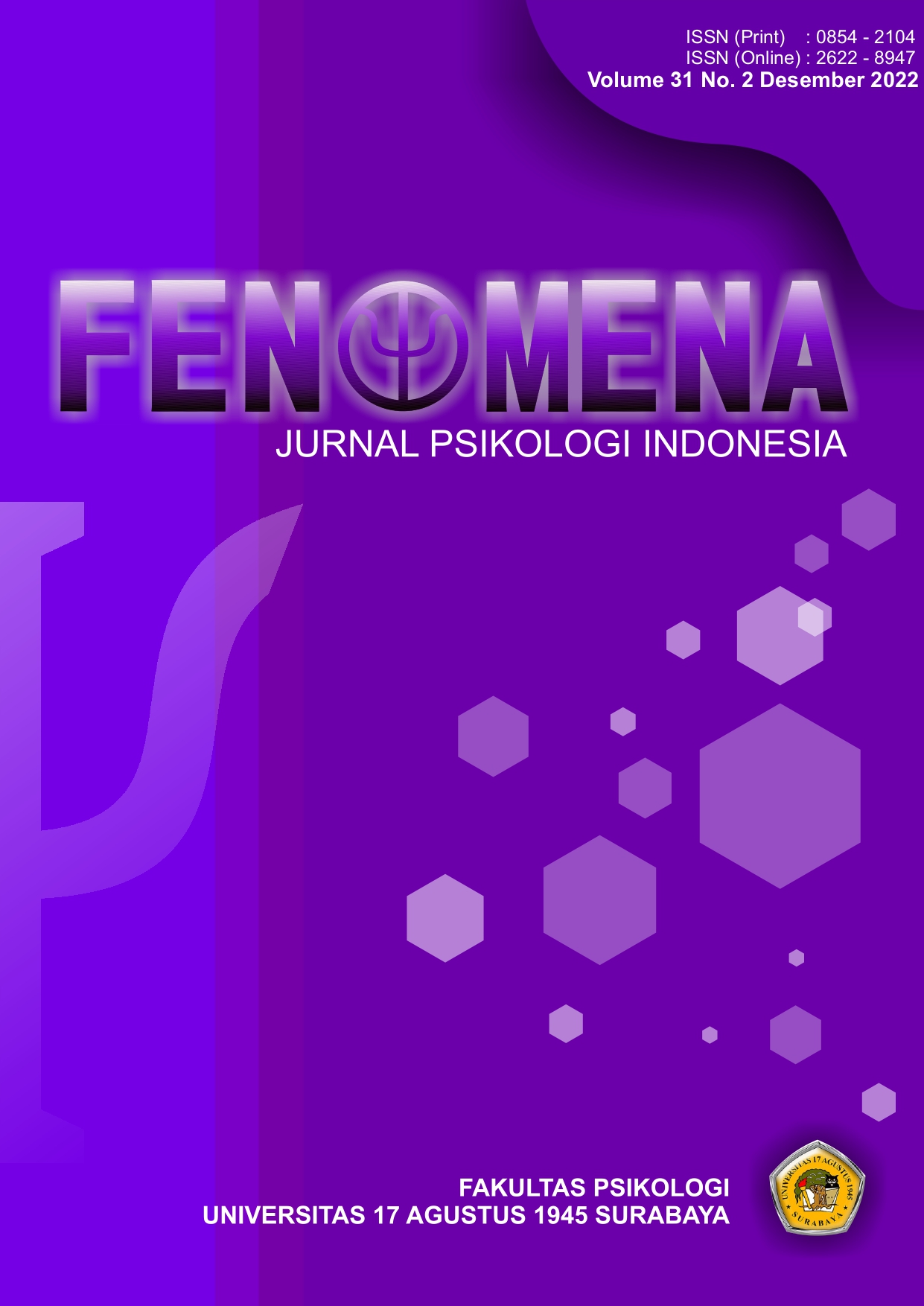Pengaruh Pengaturan Diri Terhadap Kompetensi Pengambilan Keputusan
DOI:
https://doi.org/10.30996/fn.v31i2.7415Keywords:
Decision making, Self regulationAbstract
This study aims to determine the effect of self-regulation on decision-making competence. Response patterns in one's decision making are influenced by cognitive abilities such as information processing, self-evaluation, and self-regulation (Thunholm, 2004). Self-regulation is an attempt to control oneself, especially regarding one's own choices and preferences (Baumeister & Vohs, 2004). Self-regulation in this case is related to positive emotions and coping strategies, especially problem-focused coping (De la Fuente et al., 2020). The control process is useful in the individual decision-making process in completing tasks at work. In this study, decision making is measured by the results of the assessment center. Then the self-regulation data was obtained from the results of LS-2, interpersonal psychology measurements which were developed using Goleman's theory. A quantitative approach with the type of explanatory research is used to determine the effect of self-regulation on decision making. Data analysis was processed using regression on the SPSS 25 application. All variables were tested on 104 participants who are civil employee of goverment at one of the Ministries. The results show that the influence of self-regulation on decision making shows a significant value of p> .005. This shows that decision-making competence is insignificant influenced by self-regulation.
Downloads
Downloads
Published
Issue
Section
License
Authors retain copyright and grant the journal right of first publication with the work simultaneously licensed under a Creative Commons Attribution 4.0 International License that allows others to share the work with an acknowledgment of the work's authorship and initial publication in this journal.






